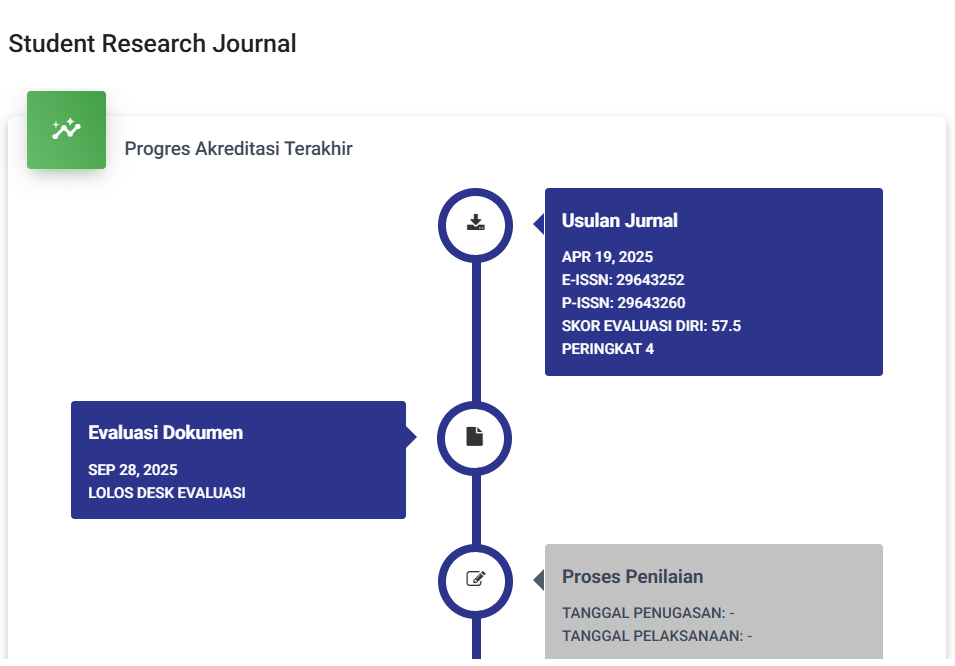Analisis Ideologi Kolonialisme Dalam Novel Bumi Manusia Karya Pramoedya Ananta Toer Kajian Pos Kolonial
DOI:
https://doi.org/10.55606/srj-yappi.v3i1.1680Keywords:
This Earth of Mankind, Colonialism, Post colonialAbstract
The importance of literary works in reflecting socio-political conditions during the colonial period, especially in the context of cultural resistance in a novel "Bumi Manusia" by a famous Indonesian writer, Pramoedya Ananta Toer. This study adopts a library method with a descriptive-analytical approach. Primary data is obtained from the novel "Bumi Manusia" and is supported by postcolonial theories from figures such as Edward Said, Homi Bhabha, and Gayatri Spivak. The analysis is carried out by identifying characters, conflicts, and narrative structures that reflect the reality of colonialism and the resistance that emerged against it. The results of the study show that this novel clearly reflects the power relationship between the colonizers and the natives, which is seen through the socio-cultural dominance of the colonial and the struggle to find a national identity, which is represented through the characters of Minke and Nyai Ontosoroh. The conclusion of this study shows that the novel "Bumi Manusia" is not just a literary work that reflects colonial conditions, but also plays a role in fighting the dominant narrative of colonialism by raising the perspective of the natives.
References
Ainunnida, R. N., & Shofiyuddin, H. (2024). Trauma Kolonial Dalam Cerpen Clara Atawa Wanita Yang Diperkosa Karya Seno Gumira Ajidarma. KONASINDO: Konferensi Nasional Mahasiswa Sastra Indonesia, 1, 122-135.
Ashcroft, B., Griffiths, G., & Tiffin, H. (2007). Post-Colonial Studies: The Key Concepts. Routledge.
Ashcroft, Bill, dkk. (2003). Menelanjangi Kuasa Bahasa: Teori dan Praktik Sastra Postkolonial. Yogyakarta: Qalam.
Bhabha, Homi. (1994). The Location of Culture. Routledge.
Budianta, M. (2004). Sastra Indonesia Pasca-Kolonial: Pengantar dan Kajian. Pustaka Jaya.
Dermawan, R. N., & Santoso, J. (2017). Mimikri dan resistensi pribumi terhadap kolonialisme dalam Novel Jejak Langkah karya Pramoedya Ananta Toer: tinjauan poskolonial. Caraka: Jurnal Ilmu Kebahasaan, Kesastraan, dan Pembelajarannya, 4(1), 33-58.
Endraswara, S. (2010). Sastra Pasca-Kolonial: Kajian Sastra Indonesia dalam Perspektif Poskolonialisme. Pustaka Pelajar.
Loomba, Ania. (2016). Kolonialisme / Pasca kolonialisme. Yogyakarta: Narasi-Pustaka Promethea.
Maman, R. (2014). Studi Pendidikan Karakter Dalam Media (Analisis Nilai-Nilai Pendidikan Karakter Dalam Novel Bumi Manusia Karya Pramoedya Ananta Toer). Journal of Rural and Development, 5(2).
Masduqi, I. (2015). QURANIC STUDIES DI EROPA. Wahana Islamika: Jurnal Studi Keislaman, 1(1), 47-63.
Muyassaroh, M. (2021). Dimensi gender dalam novel-novel Indonesia Periode 1920-2000-an berdasarkan kajian kritik sastra feminis. KEMBARA: Jurnal Keilmuan Bahasa, Sastra, Dan Pengajarannya, 7(2), 366-387.
Ratna, N. K. (2008). Postkolonialisme Indonesia Relevansi Sastra. Yogyakarta: Pustaka Pelajar.
Sarwono, J. (2006). Metode Penelitian Kuantitatif dan Kualitatif. Yogyakarta: GrahaIlmu.
Spivak, G. C. (2023). Can the subaltern speak?. In Imperialism (pp. 171-219). Routledge.
Widyatama, P. R., Trianus, J., & Utami, S. (2024). Diffusion of Innovation: Application of Interactive Learning Media in PPKn Subjects in Junior High School. JED (Jurnal Etika Demokrasi), 9 (1), 46-57.
Downloads
Published
How to Cite
Issue
Section
License
Copyright (c) 2025 Sri Wahyu Ningsih, Mila Misrohatul Karomah, Erfania Nabila, Mas’odi

This work is licensed under a Creative Commons Attribution-ShareAlike 4.0 International License.








